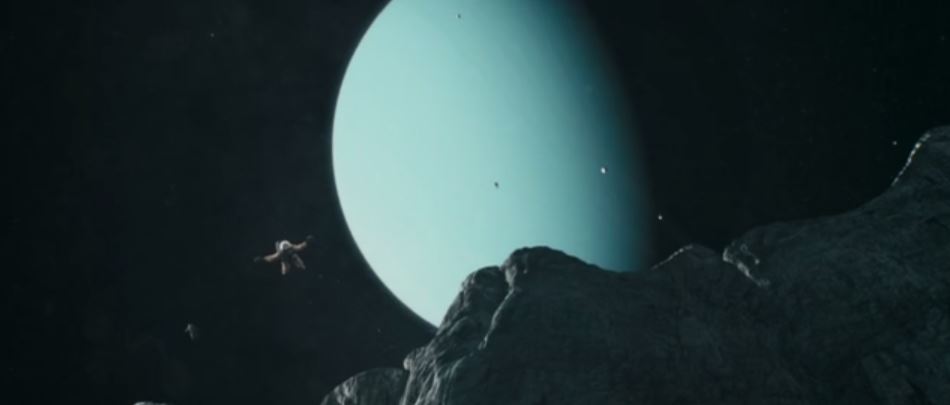It’s been all-eyes on climate change lately, what with the recent attention grabbers like the pope’s encyclical, the upcoming U.N. climate talks, and White House-commissioned reports. While the climate deserves all the attention it can get, all of this comes with a mounting sense of dread (‘cuz, you know, climate change = disaster). But not everyone is panicking about the future — some go as far as to be optimistic about it.
Enter Wanderers, a short film by Erik Wernquist, narrated by the late great Carl Sagan. In the three-minute film from 2014, you hear Sagan reading excerpts from Pale Blue Dot about the hope inspired by human ingenuity in the face of peril, while CG spaceships and winged people fly around in an imagined future solar system. The film isn’t necessarily about climate change per se, but NPR’s Adam Frank tied the two together in a recent column:
Without doubt, the sustainability bottleneck we face is real and, quite possibility, an existential challenge for civilization. On the other hand, human beings are remarkably clever and inventive and, when at our best, compassionate. I’m sure that we are capable of dealing with the climate-related challenges we face.
But such success begs another powerful question: What happens if we do figure out how to create a sustainable, equitable, energy-intensive technological civilization?
Inhabiting the solar system is not the only prize for dealing with climate change — but it may the one that’s most interesting in the long run.
So, Frank’s musings (and Wanderer’s epic scenery) is all a big “what if” scenario — but hey, I’ve always been one to nerd-out about optimistic science. Even if there’s quite a bit of fiction mixed in, too.



